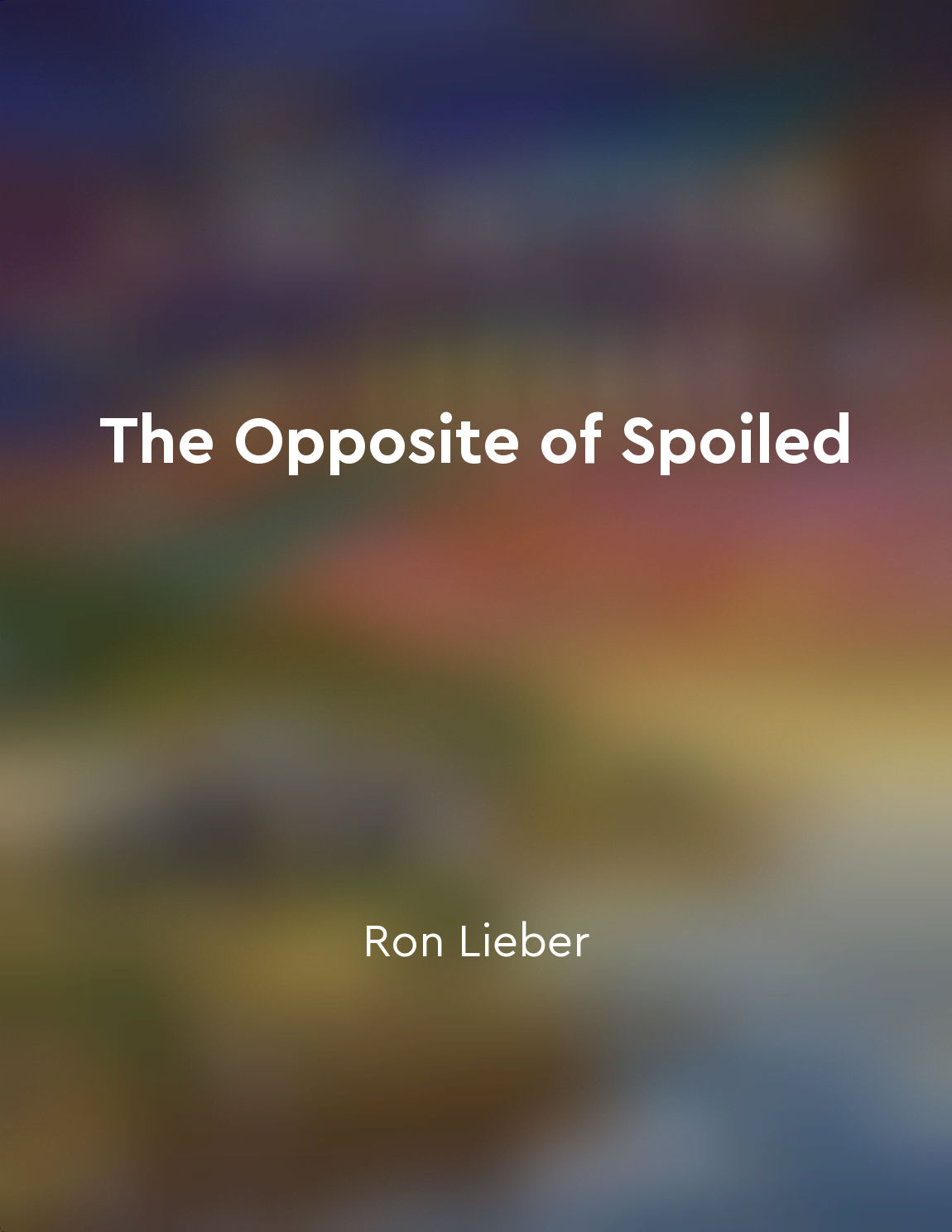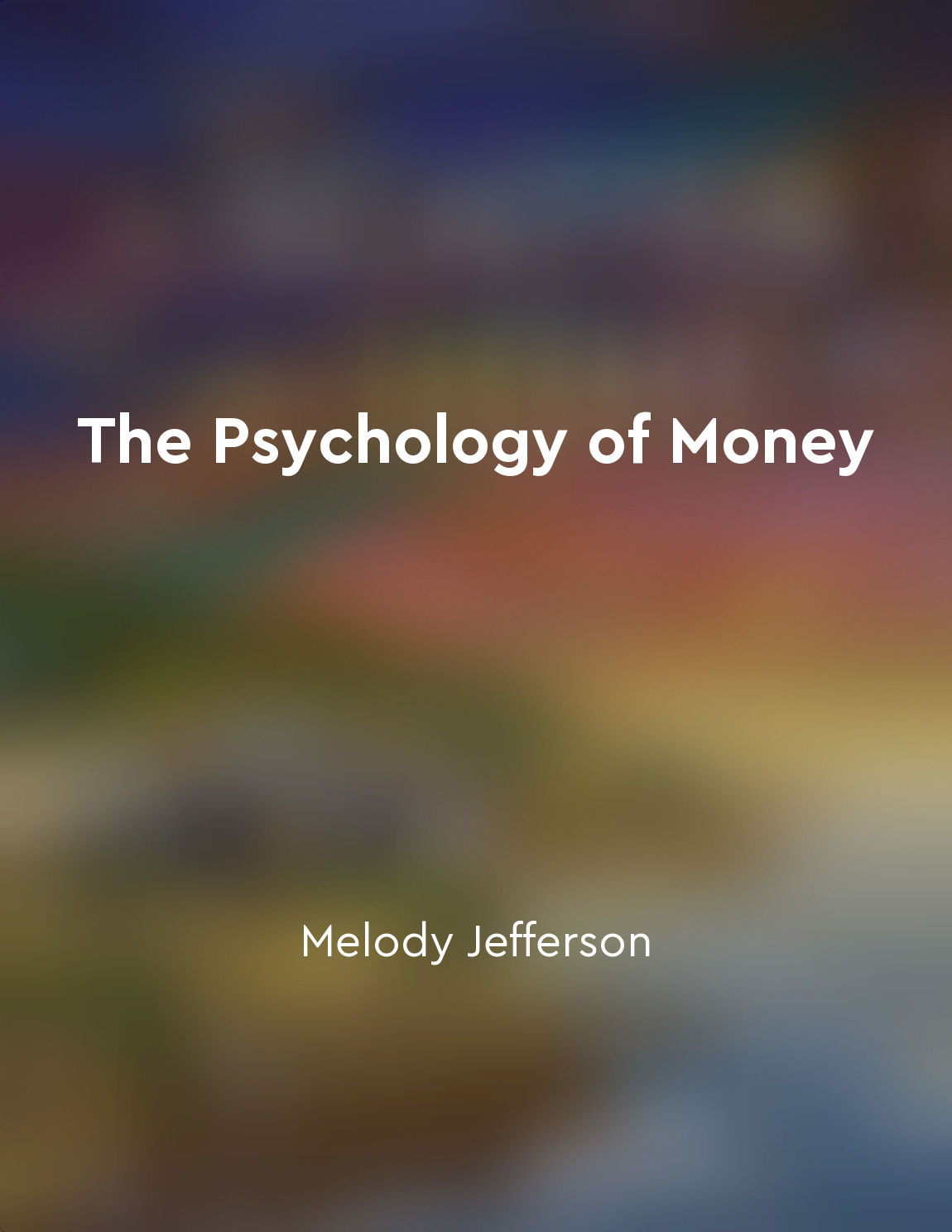Audio available in app
Money can buy comfort, but not happiness from "summary" of The Psychology of Money by Melody Jefferson,Morgan Housel
The idea that money can buy comfort but not happiness is a common theme in discussions about wealth and well-being. Many people believe that having more money will automatically lead to a higher level of happiness. While it's true that money can provide material comforts and ease certain stresses in life, it does not guarantee happiness. In the book "The Psychology of Money," the authors explore the complex relationship between money and happiness. They argue that while money can buy comfort, it cannot buy the deep sense of fulfillment and contentment that many people associate with true happiness. This distinction is crucial in understanding the limitations of wealth when it comes to overall well-being. One of the key points the authors make is that happiness is not solely dependent on external factors such as wealth or possessions. Instead, true happiness is often rooted in internal factors such as relationships, personal growth, and a sense of purpose. These are aspects of life that cannot be bought with money, no matter how much one may have. Moreover, the authors highlight the concept of the "hedonic treadmill," which suggests that people quickly adapt to changes in their circumstances, including increases in wealth. This means that while a sudden windfall or increase in income may provide a temporary boost in happiness, it is unlikely to have a lasting impact on overall well-being. The authors also point out that the pursuit of wealth can sometimes detract from other sources of happiness, such as spending time with loved ones, pursuing meaningful activities, or engaging in hobbies and interests. In this way, an excessive focus on money and material possessions can actually hinder one's ability to experience true happiness.- The authors argue that while money can certainly buy comfort and alleviate certain sources of stress, it is not a guarantee of happiness. True happiness comes from within and is often derived from intangible sources that cannot be purchased. By understanding this distinction, individuals can cultivate a more balanced and fulfilling approach to wealth and well-being.
Similar Posts
Set clear goals and create a plan to achieve them
One of the most important steps in transforming your financial situation is to establish clear objectives and develop a structu...
Psychological wellbeing contributes to happiness
In understanding what contributes to happiness, it is important to consider the role of psychological wellbeing. Psychological ...
Surround yourself with positivity
Surrounding yourself with positivity is essential for maintaining a healthy mindset and achieving success in life. When you are...
Create a winning team to support your vision
To achieve success in your endeavors, it is crucial to surround yourself with a team that shares your vision and is dedicated t...
Engaging in activities that align with personal values can enhance happiness
In the pursuit of happiness, one important aspect to consider is engaging in activities that align with our personal values. Wh...
Role models play a significant role in shaping financial attitudes
Role models are influential figures who can shape our attitudes and behaviors, particularly in the realm of finance. We look up...
Be open to growth and change
"Be open to growth and change" is a fundamental concept that is essential for personal development and self-improvement. It req...

Authenticity is essential for experiencing joy
Being authentic means being true to yourself, being genuine in your thoughts and actions. When you are authentic, you are not t...
Our desires and preferences can change over time
Our desires and preferences are not set in stone; they are more like moving targets, constantly shifting and evolving over time...

Encourage kids to earn their money
One of the most important lessons we can teach our children about money is the value of hard work. By encouraging kids to earn ...


